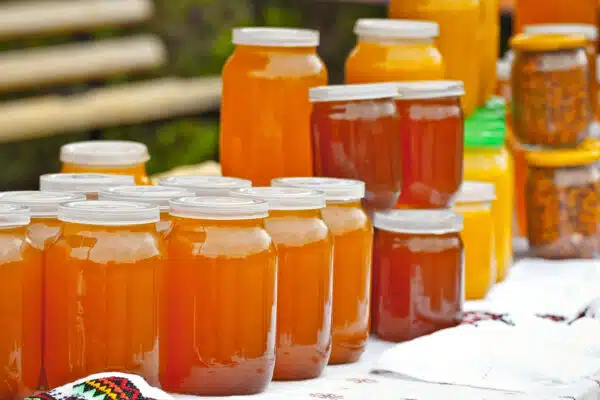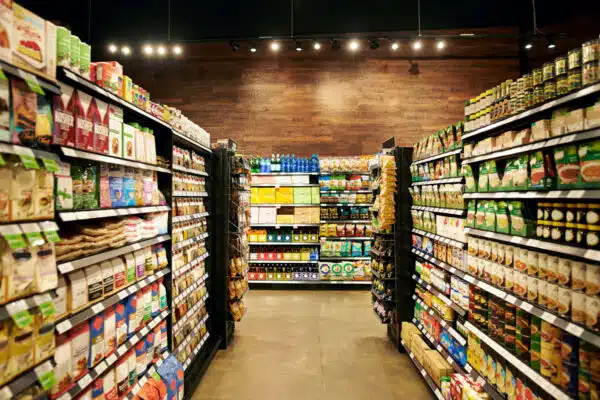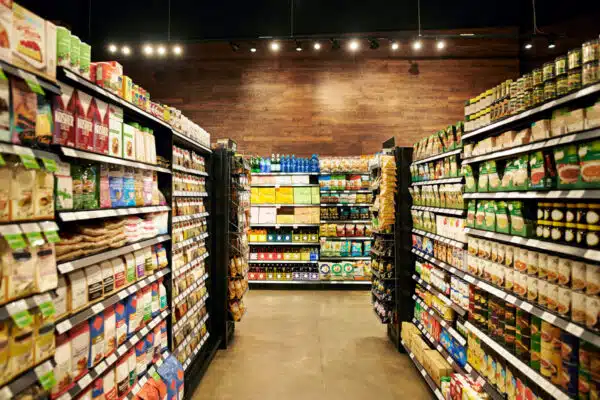Sustainable Choices: Australian Food Labelling and Environmental Claims
In today’s eco-conscious society, consumers are increasingly seeking out sustainable products that align with their values. Australian food labelling plays a crucial role in guiding these choices, offering transparency and assurance about the environmental impact of the products we consume. This article delves into the importance of environmental claims on Australian food labels and how they can influence sustainable choices.
The Role of Environmental Claims
According to a blog by Carson Mcdowel, environmental claims on food and drink products have become increasingly important as consumers become more conscious of the harmful impact some food production practices can have on the environment.
Environmental claims provide vital information about the sustainability of a product. These claims can cover various aspects, including organic farming practices, carbon footprint, water usage, and packaging recyclability. By highlighting these attributes, manufacturers can communicate their commitment to sustainability, while consumers can make informed decisions based on their environmental preferences. However, the claims must be true and easily understood by the consumer. For example, consumers are used to the environmental labelling contained on cans of tuna. Some products are labelled as Dolphin Friendly or FAD Free fish catching method and also where the fish is caught. FAD free is the tuna being caught without fish aggregating devices. Some products also state that the fish has been responsibly caught. Claims, to be meaningful, must be easily understood. You might find that other sustainability claims are not easily understood.
Understanding Australian Food Labelling Regulations
In Australia, food labelling regulations ensure that environmental claims are not misleading. In fact, according to the Australian Competition and Consumer Commission (ACCC), which oversees these regulations, food producers when making environmental claims must ensure that they are true, accurate and, based on reasonable grounds. For instance, a product claiming to be “biodegradable” must follow specific steps and conditions for biodegradability and disintegration. In cases such as these, you would need to provide sufficient information in order for the claims to not be false or misleading.
The Importance of Transparency
Transparency in food labelling is crucial for building trust between consumers and manufacturers. Detailed information about sourcing, production processes, and environmental impact allows consumers to understand the full lifecycle of a product. This transparency empowers consumers to make choices that align with their environmental values. However, you must ensure that the information you are provided with about the ingredients and the packaging supplied to you supports the claims you make on your label. Get the information about their ingredients or products in writing. Talk to your suppliers about the claims you want to make to ensure that what they supply you with stacks up to the claim you are proposing. If it doesn’t – change the claim you are wanting to make that is supported by the evidence.
The Impact of Sustainable Labelling on Consumer Behaviour
Sustainable labelling can significantly influence consumer behaviour. Research indicates that consumers are willing to pay a premium for products with environmental claims, as they perceive these products to be of higher quality and more ethical. This trend is driving an increase in demand for sustainably labelled products, encouraging more manufacturers to adopt environmentally friendly practices.
“Consumers are willing to pay a higher price for products certified as sustainable.” – Katharina Bissinger, an Economist and Researcher
Challenges in Sustainable Labelling
While sustainable labelling offers numerous benefits, it also presents challenges. One of the main challenges is ensuring the accuracy and consistency of environmental claims. With varying standards and certifications, it can be difficult for consumers to compare products and verify claims. Education and awareness are key to overcoming this challenge, helping consumers understand the meaning behind different labels and certifications, as we see with the labelling of canned tuna.
Moving Towards a Sustainable Future
As awareness of environmental issues continues to grow across the world, the demand for sustainable products is set to increase. Australian food labelling will play a pivotal role in this shift, guiding consumers towards choices that are better for the planet. By embracing transparent and accurate environmental claims, manufacturers can contribute to a more sustainable future.
“Ultimately, though, such a label would not only help us, as consumers, but also lead to a greener and more sustainable planet.” – Dr. Tony Benson, a Research Fellow and Lecturer in Health Psychology
Sustainable choices are becoming increasingly important in our daily lives, and Australian food labelling is at the forefront of this movement. Environmental claims on food labels provide valuable information that helps consumers make informed decisions. The article by Dr Tony Benson explores the full meaning of sustainability.
Navigating the complexities of sustainable food labelling can be daunting for small food manufacturers. This is where Food Labelling Experts can help you understand the requirements to make sure that you are not misleading consumers with claims that you may make. We also provide specialised courses and resources to help businesses understand and comply with food labelling regulations. Get access to our courses to ensure that manufacturers can confidently communicate about your food product to consumers.
FAQs
What are environmental claims on food labels?
Environmental claims on food labels provide information about the sustainability and environmental impact of a product. These can include details about organic farming, carbon footprint, water usage, and recyclability, for example.
How are environmental claims regulated in Australia?
The Australian Competition and Consumer Commission (ACCC) regulates environmental claims to ensure they are not misleading. Claims must be accurate, verifiable, and relevant to the product’s impact on the environment. The ACCC has said that sustainability and environmental claims are claims that are currently on their list for compliance and enforcement action. Indeed they are prosecuting when they find that the claims made are false or misleading. The ACCC has also published a guide relating to environmental claims. Qualifying your claim in small writing on the back of the label will not necessarily provide you with a defence if you are prosecuted either. Judgements can be based on the impression that an ordinary consumer will take from a large claim on the front of pack, not the qualifier in small writing on the back of pack.
Why is transparency important in food labelling?
Transparency allows consumers to make informed decisions based on their environmental values. It builds trust between consumers and manufacturers and helps consumers understand the full lifecycle of a product.
How do sustainable labels influence consumer behaviour?
Sustainable labels can drive consumer preference towards products that are perceived as more ethical and of higher quality. This can lead to a willingness to pay a premium for sustainably labelled products.
What challenges are associated with sustainable labelling?
One of the main challenges is ensuring the accuracy and consistency of environmental claims. Education and awareness are crucial to help consumers understand and verify different labels and certifications.
How can consumers trust the sustainability claims on food labels?
Consumers can look for certifications from reputable organisations and check if the claims are backed by verifiable information. Reading labels carefully and staying informed about different certifications can help build trust.
What is the future of sustainable food labelling?
The demand for sustainable products is expected to grow, with food labelling playing a key role in guiding consumers towards more environmentally friendly choices. The focus will likely be on transparency and the story behind the product’s journey.
Learn the essentials of eco-friendly food labelling with our comprehensive courses. Get in touch with Food Labelling Experts to ensure your products meet environmental standards





